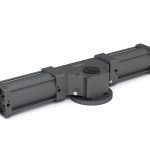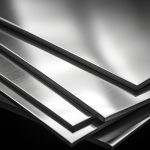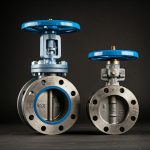Pneumatic Actuators :Double Acting Type PD
Pneumatic Actuators :Double Acting Type PD
- Picture:

- Checkbox: Yes
- Feature Title: Can be used in natural gas, nitrogen, air etc. Services
- Feature Description: One of the outstanding features of this type of actuator is its ability to be used in various gas services. This means that these actuators can be used to control the flow of gases such as natural gas, nitrogen, air, and other industrial gases.
- Feature Title: Compliant with IGS, IPS and API 6DX standard requirements
- Feature Description: Another important feature of PD pneumatic actuators is their compliance with international standards. Standards such as IGS, IPS, and API 6DX define specific technical and safety requirements for equipment used in various industries, including oil, gas, and petrochemical industries.
- Feature Title: Design with Scotch-Yoke mechanism suitable for quarter-turn valves
- Feature Description: The Scotch-Yoke mechanism is a mechanism that converts linear motion into rotary motion. In pneumatic actuators, the linear motion of the piston is created by air pressure, and then this linear motion is converted into rotary motion by the Scotch-Yoke mechanism. This rotary motion is transmitted to the valve shaft, causing the valve to open and close.
- Feature Title: Use of high engagement level rollers to transfer power without slipping
- Feature Description: Due to their high friction surface, these rollers transfer the driving force accurately and uniformly to the output shaft. This results in a more precise and controllable actuator movement.
- Feature Title: Converting linear force into rotation in a chamber separate from the pressurized cylinder
- Feature Description: In conventional pneumatic actuators, the linear force generated by air pressure is directly transmitted to the moving components, causing rotary motion. However, in this specific design, the mechanism that converts linear force to rotary motion is housed in a separate chamber, isolated from the pressurized cylinder. This feature is particularly important in the oil and gas industry where the risk of explosion is high.
- Picture:

- Checkbox: Yes
Warning: foreach() argument must be of type array|object, string given in /home/danielco/domains/danielco.ir/public_html/wp-content/plugins/meta-box-aio/vendor/meta-box/meta-box-group/group-field.php on line 453
- Torque generation from 480 to 50,000 newton meters
- Ability to work in temperature conditions from -30 to +80 degrees
- Design capability for low temperatures up to -50 and high temperatures up to +150
- Connection flange design based on ISO 5211 standard
- Rotation range from -5 to 95 degrees
- Designed according to NAMUR and VDI 3845 standards
- Ability to design with MANUAL HANDWHEEL mechanism
- Picture:

- Checkbox: Yes
- Usage Title: Steel Industries
- Usage Description: The steel industry faces challenging and harsh working environments. Extremely high temperatures, suspended particles, corrosive chemicals, and the need for precise process control are among the factors that make the selection of suitable equipment very important. Pneumatic actuators, due to their unique characteristics, are considered the best option for these industries.
- Usage Image:

- Usage Title: Oil and Gas and Petrochemical Industries
- Usage Description: Double-acting PD pneumatic actuators have found widespread use in the oil, gas, and petrochemical industries due to their unique characteristics. These industries, characterized by harsh working conditions and the need for precise fluid flow control, require equipment with high reliability and performance.
- Usage Image:

- Usage Title: Use as an Operator in Ball valves and Butterfly valves
- Usage Description: PD pneumatic actuators are widely used as actuators in ball and butterfly valves due to their simple structure, high reliability, and affordable price. These actuators use compressed air to provide the necessary force to open and close the valve.
- Usage Image:

Pneumatic Actuators :Double Acting Type PD

Relying on its technical strength and experience, Daniyal Para Development Company has the possibility to produce according to your request.
Designed for use in natural gas service
To change this text, click on the edit button. Lorem Epsom is a mock text with an incomprehensible simplicity produced by the printing industry and used by graphic designers.
Designed for use in natural gas service
To change this text, click on the edit button. Lorem Epsom is a mock text with an incomprehensible simplicity produced by the printing industry and used by graphic designers.
Designed for use in natural gas service
To change this text, click on the edit button. Lorem Epsom is a mock text with an incomprehensible simplicity produced by the printing industry and used by graphic designers.
Designed for use in natural gas service
To change this text, click on the edit button. Lorem Epsom is a mock text with an incomprehensible simplicity produced by the printing industry and used by graphic designers.
Technical Specifications
Design and production in pressure classes 150, 300 and 600
Design and production in pressure classes 150, 300 and 600
Design and production in pressure classes 150, 300 and 600
Design and production in pressure classes 150, 300 and 600
Gas pressure reduction stations
To change this text, click on the edit button. Lorem Epsom is a mock text with an incomprehensible simplicity produced by the printing industry and used by graphic designers.
Gas pressure reduction stations
To change this text, click on the edit button. Lorem Epsom is a mock text with an incomprehensible simplicity produced by the printing industry and used by graphic designers.
Gas pressure reduction stations
To change this text, click on the edit button. Lorem Epsom is a mock text with an incomprehensible simplicity produced by the printing industry and used by graphic designers.
Gas pressure reduction stations
To change this text, click on the edit button. Lorem Epsom is a mock text with an incomprehensible simplicity produced by the printing industry and used by graphic designers.






